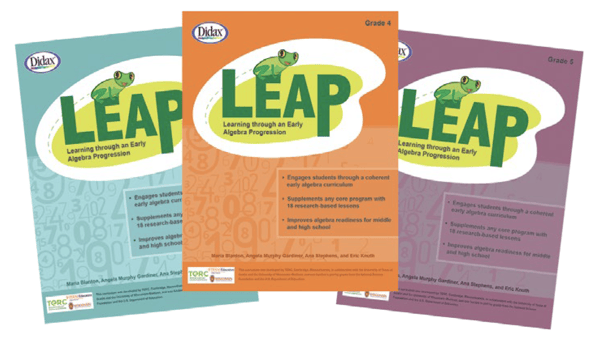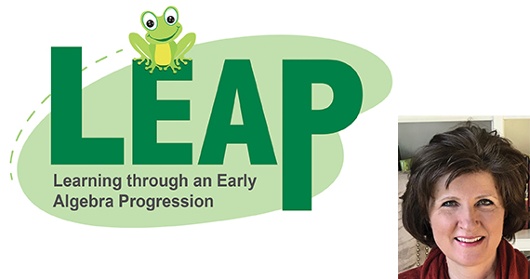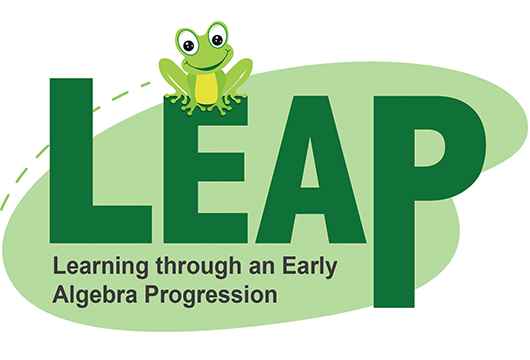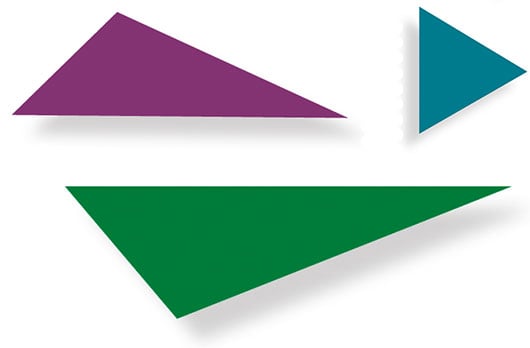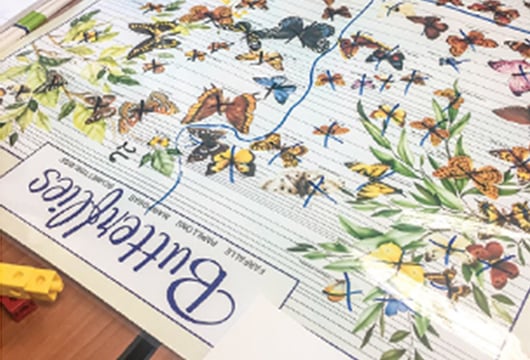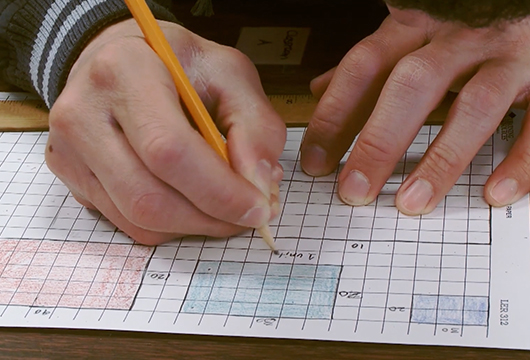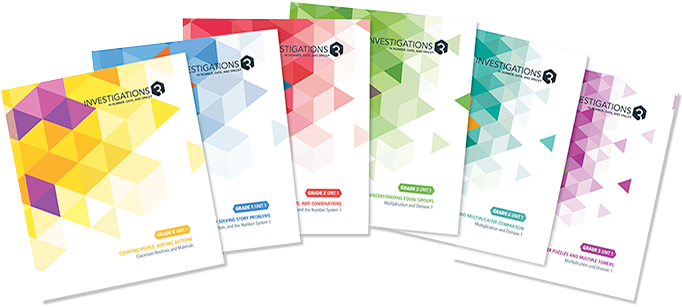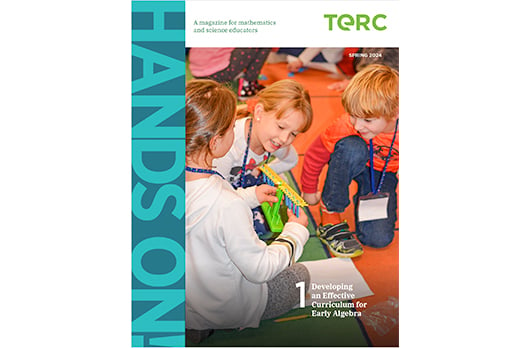TERC Blog
The LEAP Forward: Algebra in the Early Grades
An Interview with Maria Blanton
In conjunction with researchers at the University of Texas at Austin and the University of Wisconsin-Madison, TERC has developed LEAP, Learning through an Early Algebra Progression. We were able to sit down with Maria Blanton, a Senior Scientist at TERC, to discuss the program.
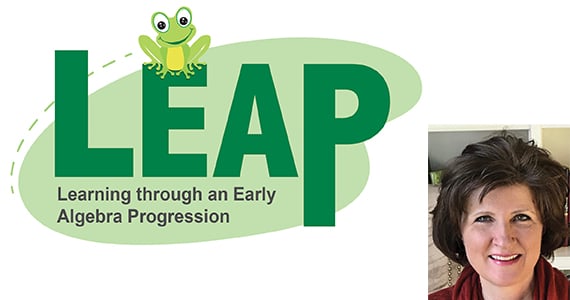 What brought you to this project? Why did you think there was a need for an early algebra curriculum?
What brought you to this project? Why did you think there was a need for an early algebra curriculum?
We recognized that, generally, students are not prepared for the kind of math that they are doing in middle school and high school, and that algebra is really the gatekeeper for postsecondary education and entering the job market. We found that by spending just a little bit of time building early algebraic concepts in elementary grades, we can significantly improve children’s algebra readiness as they enter middle grades, and this has the potential to transform their success in school mathematics.
What makes LEAP different than other elementary programs?
LEAP is a supplemental program entirely focused on building early algebra thinking, yet it does so by connecting with and deepening children’s understanding of arithmetic. It uses a series of tasks and activities to help children build their understanding of key algebraic concepts and practices over time. It is a first-of-its-kind resource that delivers authentic early algebra experiences for all learners: the lessons are coherent; the concepts are connected; the content is accessible; and the outcomes are transformative, increasing children’s readiness for learning formal algebraic concepts in later grades.
The title of the program talks about an “Early Algebra Progression.” What does this mean?
LEAP is based on extensive research in elementary classrooms that helped us design lessons that reflect how children’s algebraic thinking develops. We set out to build a program that would help students develop their understanding of early algebraic concepts gradually, over time. The lessons are connected across the grades, reflecting a progression of increasingly sophisticated concepts and practices. We focus on three big ideas: Equivalence, Expressions, Equations and Inequalities; Generalized Arithmetic; and Functional Thinking. These big ideas help us build the core algebraic thinking practices of generalizing, representing, justifying, and reasoning with mathematical structure and relationships.
What does a LEAP lesson look like?
Each LEAP lesson provides the background information that teachers need to support learning in the classroom. We identify the outcomes of the lesson and also help teachers understand the rationale for the tasks that children will be engaged in. We start the lesson with a Jumpstart question to engage the students, and then provide instructions and prompts that help teachers guide children through the tasks. At the end of the lesson, a Review and Discuss prompt allows teachers to quickly check student understanding and provide correction and support when necessary.
Tell us a bit more about the research behind the LEAP program.
The LEAP program is based on over a decade of research in elementary classrooms. All lessons have undergone years of testing in authentic settings in order to understand how children make sense of lesson tasks and activities and how to support teachers in successfully implementing the program. Lessons are packed with research-based insights into how children think about particular concepts, the difficulties they might have, and how teachers can address these.
You’ve tested this with a lot of students in the classroom. What has been the student response to the lessons?
Students’ capacity for algebraic thinking—and their engagement with LEAP lessons— has always amazed us. A critical feature of each LEAP lesson is building rich classroom conversations around algebraic ideas. We have found that all children bring interesting ideas to classroom conversations and have the capacity to think algebraically. With the LEAP program, children are excited to learn because lessons are based on the investigation of ideas, and they each have a contribution to make.
What type of training does a teacher need to implement the lessons in LEAP?
We recommend that teachers start with a two-day training session, with follow-up sessions throughout the year as they implement LEAP. The goal of the professional development is threefold: (1) develop and strengthen teachers’ knowledge of algebraic thinking practices and core concepts; (2) understand how students make sense of these concepts and practices and how to respond to their ideas in instruction; and (3) explore teaching practices that increase students’ engagement with core algebraic concepts and practices.
How can I learn more about LEAP and using the program in my school or district?
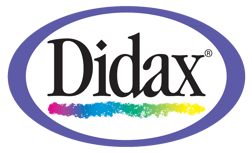
We have partnered with Didax to publish the instructional materials for theLEAP curriculum. Currently there are resources available for grades 3, 4, and 5. They are being published in the Spring of 2020. Visit www.didax.com/leap for more information about the books and professional development and to order. Funded by the National Science Foundation and the United States Department of Education.
Additional information about the creation of LEAP
Read this Hands On! magazine article, Building Solutions for Early Algebra Readiness, to dive deep into the research behind how this early algebra curriculum was developed.
About Maria Blanton
 Maria Blanton is a Senior Scientist at TERC in Cambridge, MA. Her primary research interests include teaching and learning algebra in the elementary grades. Her expertise has led to numerous federally-funded research projects and national and international presentations and publications (in, e.g., Journal for Research in Mathematics Education, American Educational Research Journal, Educational Studies in Mathematics, Teaching Children Mathematics). She is co-editor of the research volumes Algebra in the Early Grades (2008, Taylor/Francis) and Teaching and Learning Proof Across the Grades (2009, Routledge), author of Algebra and the Elementary Classroom: Transforming Thinking, Transforming Practice (2008, Heinemann), and co-author of Developing Essential Understanding of Algebraic Thinking for Teaching Mathematics in Grades 3–5 (2011, NCTM) and Teaching with Mathematical Argument: Strategies for Supporting Everyday Instruction (2018, Heinemann). She has served as Chair of the Editorial Panel for the Journal for Research in Mathematics Education and Chair of the Special Interest Group for Research in Mathematics Education (SIG-RME) of AERA. Dr. Blanton is currently PI of US DoE and NSF-funded projects investigating Grades K-5 children’s understanding of algebraic reasoning and the impacts of sustained early algebra education on children’s algebra-readiness.
Maria Blanton is a Senior Scientist at TERC in Cambridge, MA. Her primary research interests include teaching and learning algebra in the elementary grades. Her expertise has led to numerous federally-funded research projects and national and international presentations and publications (in, e.g., Journal for Research in Mathematics Education, American Educational Research Journal, Educational Studies in Mathematics, Teaching Children Mathematics). She is co-editor of the research volumes Algebra in the Early Grades (2008, Taylor/Francis) and Teaching and Learning Proof Across the Grades (2009, Routledge), author of Algebra and the Elementary Classroom: Transforming Thinking, Transforming Practice (2008, Heinemann), and co-author of Developing Essential Understanding of Algebraic Thinking for Teaching Mathematics in Grades 3–5 (2011, NCTM) and Teaching with Mathematical Argument: Strategies for Supporting Everyday Instruction (2018, Heinemann). She has served as Chair of the Editorial Panel for the Journal for Research in Mathematics Education and Chair of the Special Interest Group for Research in Mathematics Education (SIG-RME) of AERA. Dr. Blanton is currently PI of US DoE and NSF-funded projects investigating Grades K-5 children’s understanding of algebraic reasoning and the impacts of sustained early algebra education on children’s algebra-readiness.

